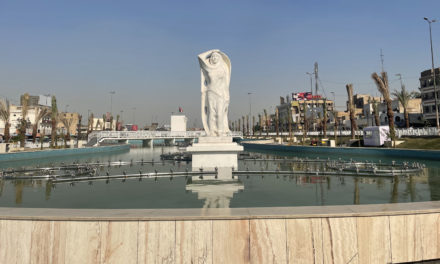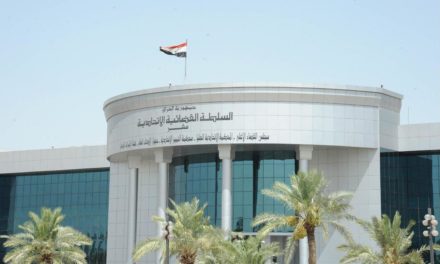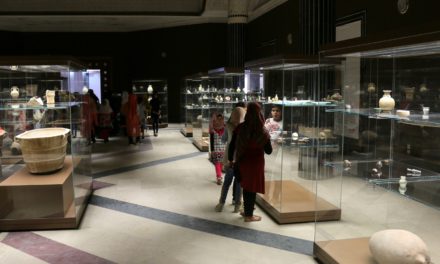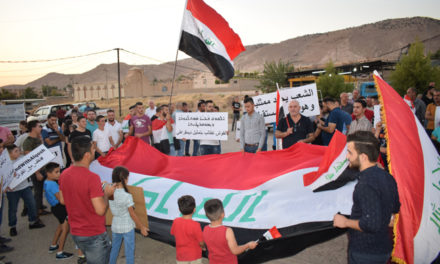I was just sixteen years old in 2003 when US troops toppled Saddam Hussein, a dictator who led Iraq for thirty years and who feared any institutions separate from the state of the ruling party. Up until then, I had spent all of my life on my grandfather’s farm, walking five miles back and forth every day to attend the school closest to our small village. During all these years, no one discussed the idea of civil society, neither in school nor in the community. Civil society organizations were paralyzed or dominated by the government solely to carry out pro-regime activities. With Hussein gone, I learned that there could be other institutions in the country beside the government; ones those ordinary citizens could consider part of a “civil society”. It took me five more years, after military service and a university education, to fully understand the concept.
In 2008, two of my friends and I established a capacity building center in Sinjar, Iraq, where we taught students public speaking, language skills and formal debate. Our center was a living civil society organization, and we were invited to attend workshops, presentations and seminars with other newly-formed civil society groups.
Over time, I have come to more fully appreciate the significance of what it means to have a civil society and its interlocking components – institutions, organizations and individuals. These entities include, at a minimum, activists, religious organizations, charities, community groups, and nonprofit organizations. Together, they promote democratic activities like voting and assist in shaping the culture, politics, and economies of their citizens and their nations.
In Iraq, civil society organizations now can play a crucial role in training politicians and future as well as current government officials in a style of public speaking that is less or even non-sectarian. Sanad, an Iraqi civil society organization, has been holding seminars and workshops where they invite the heads of the different tribes from areas recently liberated from ISIL. These tribal leaders come together and discuss their common issues and goals and in so doing step away from the sectarianism and hatred that divides them. It has been a successful experiment in the central areas of Iraq, and it is critical that these institutions spread throughout the remaining regions of the country. Currently, there are about 6,000 civil society organizations in Iraq.
In the same way that civil society was paralyzed under Saddam’s rule of Iraq, media had no role except to praise the president and offer propaganda for the ruling regime. The media had no autonomy, and we, as people (and as citizens), had no access to independent information. After 2003, many new channels were opened. News agencies were established and newspapers were published. Today, there are at least 45 TV and radio channels and 200 magazines and newspapers, both print and online that are providing news in Iraq. Different point of views can now be expressed for political and advocacy agendas.
Before attending college, I assumed that media existed to tell us some news and praise a certain government or party. However, when I minored in journalism at the American University of Iraq Sulaimani, I learned that media can do much more.
Now I know that that media can play a vital role in both guiding and influencing societies in many ways. An independent media can help the masses get information about various topics by offering a forum for competing ideas. It plays a role in forming opinions and judgments regarding issues vital to democracy and pluralism. In Iraq, for instance, 97% of the Iraqi population has access to media either via TV, Internet or radio. Helping those media institutions to make the transition from propaganda arms of one faction or party to independent news and opinion institutions are vital to the development of a democratic and pluralist society and political system. If successful, these independent journalistic institutions and norms can break down sectarianism and promote inclusion.
An independent media can act as a voice that encourages community leaders, policy makers, tribal leaders, religious figures and even celebrities to join together to prevent small incidents from erupting into divisive and violent explosions that tear apart a region or a nation. These unfortunate events have escalated way too often in Iraq with catastrophic results.

Nawaf Ashur
Nawaf Ashur Haskan is a Yazidi journalist from Iraq currently based in the DC area. He is a research fellow with a Reagan-Fascell Fellowship at the International Forum for Democratic Studies at the National Endowment for Democracy (NED). Nawaf is engaged in research assessing the strengths and weaknesses of civil society in Iraqi-Kurdistan. He is also a graduate from the American University of Iraq–Sulaimani (AUIS) and a published poet in the Iowa Review. As a journalist, he has discussed issues related to sectarian conflict and democratization in several major and local news outlets including Public Radio International, Iraq Oil Report, and Niqaash.










